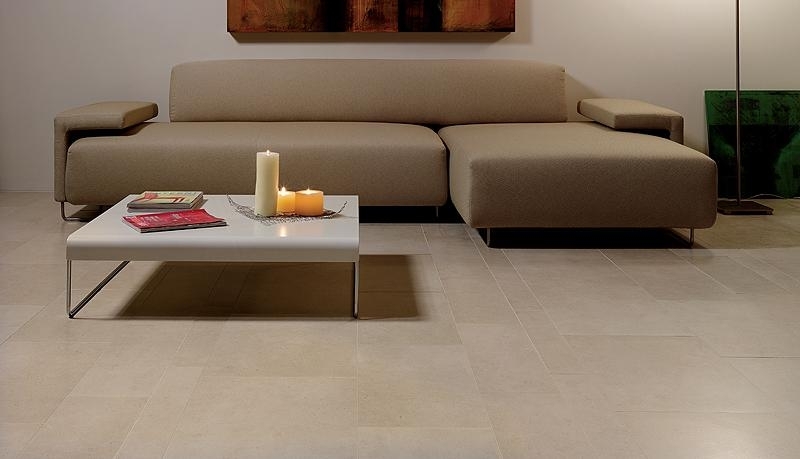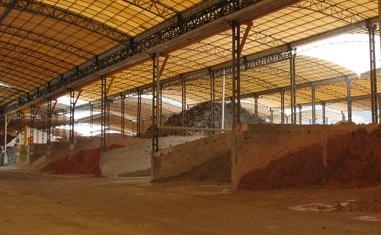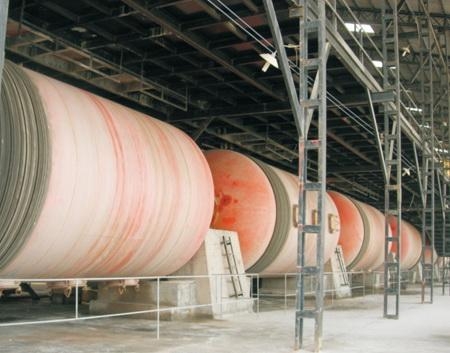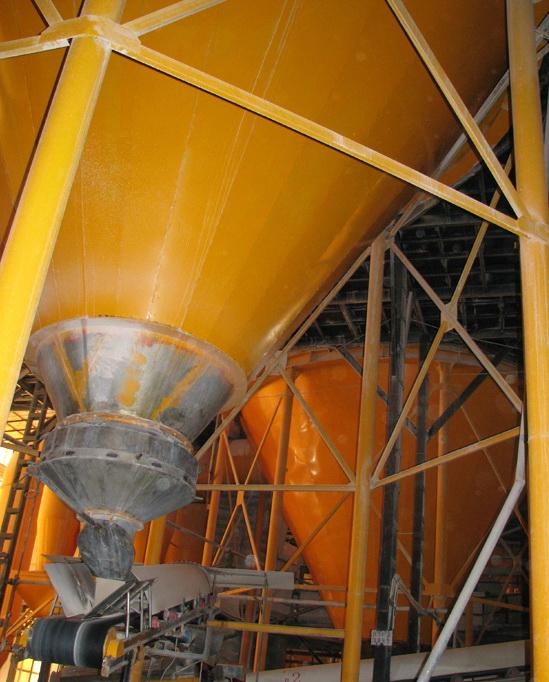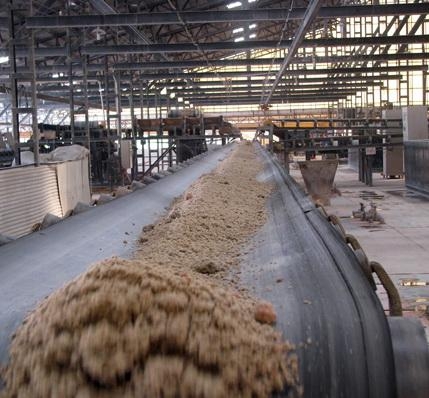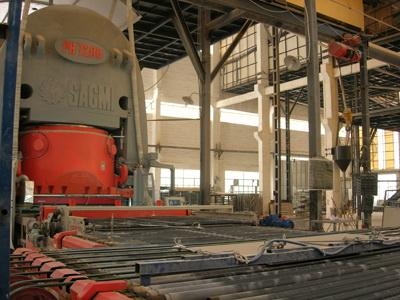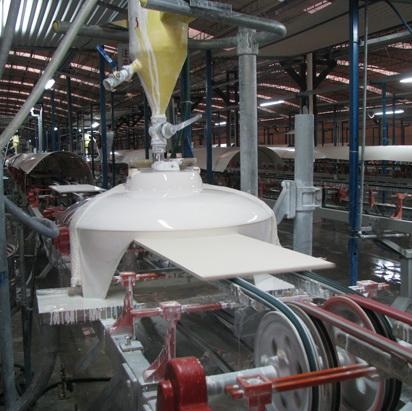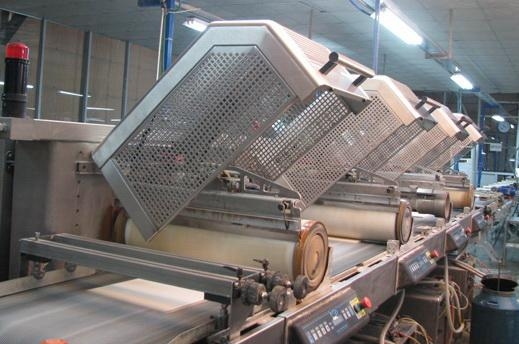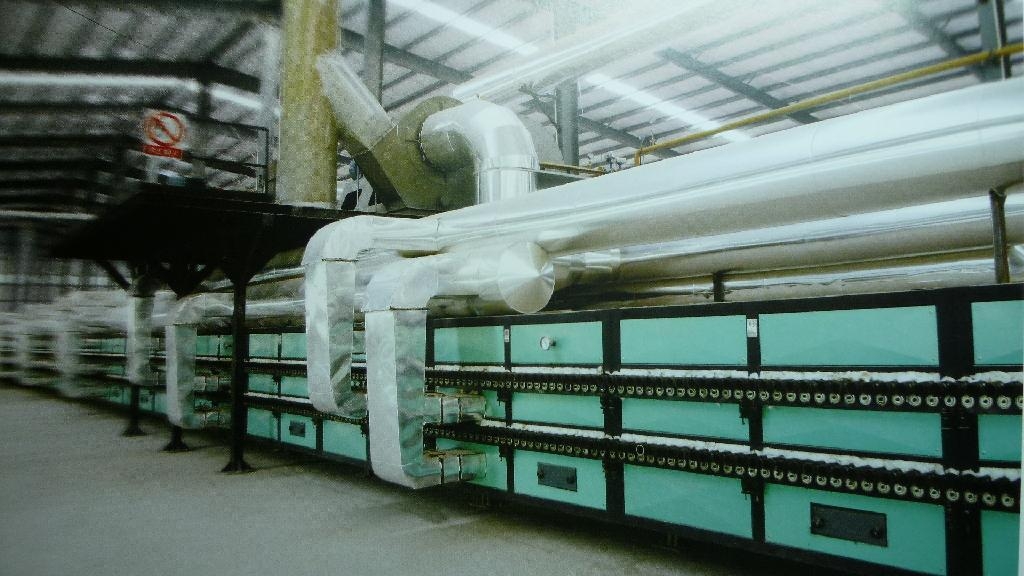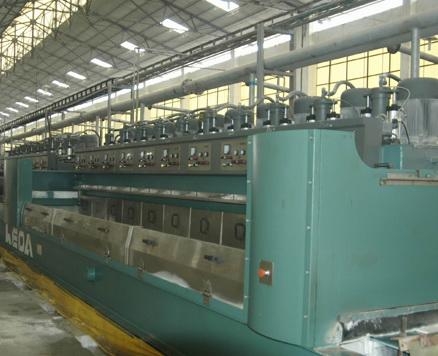|
|
|
|
|
|
|
|
|
|
![]()
Our group owns two Vitreous China sanitary ware factories and one porcelain tiles & ceramic tiles factory set up in Zhaoqing & KAIPING city respectively in Guangdong Province, headquartered in FOSHAN. The former name of our group is FengLing Building Ceramics Co., Ltd., established in 1990.
VANANO CERAMICS is a specialized manufacturer & exporter of various kinds of wall tile and floor tile, our have set up two production base which covers more than 200,000 square meters plus a +1,000 staff team, among which includes +80 specialists & engineers. After more than 20-years hard works, we have been designed and distributed more than 1800 wall tile and floor tile, Now the output per year had achieved more than 3,000,000sqm of porcelain tile, 3,000,000sqm of ceramic tile, 600,000sqm of crystallized glass stone, Including porcelain floor tiles, porcelain wall tiles, polished porcelain tile, glazed porcelain tile, unglazed porcelain tile, crema marfil porcelain tile, thin porcelain tile, travertine porcelain tile, white porcelain tile, black porcelain tile, wood look porcelain tile, white polished porcelain tiles, outdoor porcelain tile, porcelain tile flooring, kitchen ceramic tiles, bathroom ceramic tiles, white ceramic tile, crystallized glass stone, crystallized glass panel, crystallized glass tile, residential tiles, commercial tiles, We acquired ISO90001:2000, CE, CCC, which covers the entire process from product design and raw materials to production and final products. With our excellent R&D team, we do our best to provide you all kinds of models, dimensions, special design at competitive price. In 2008 as the supplier had been selected by American casino, resort and hotel projects. Our goal is to supply good quality, punctual delivery and our best service to customers. Up to now, most our customers from Germany, France, UK, Italy, Russia, USA, Canada, Australia, New Zealand and Singapore.
In the future, we are looking forward to establish more business relationship with people all around the world, and we encourage our international buyers to become their local distributors and establish long-term business relationship with us.
Basic Information
Tile Factory name: VANANO CERAMICS CO., LTD
Business Type: Manufacturer, Supplier, Exporter
No. of Total Employees: 2100
Year Established: 1990
Tiles Brand Name: VANANO
Product Range: floor tile, ceramic tile, bathroom tile, porcelain tile, crema marfil porcelain tile, full body porcelain tile, double loading tiles, Marble effect tiles, wood effect tiles, linen tile, crystallized glass panel, white crystallized glass, beige crystallized glass, bath tile, wall tile, kitchen tile, backsplash tile, subway tile, super white tile, super black tile, travertine porcelain tile, glazed ceramic tile, bathroom floor tile, kitchen floor tile, bathroom wall tile, kitchen wall tile, black floor tile, porcelain floor tiles, exterior tile, ceramic wall tile, ceramic bathroom tile, bathroom ceramic tile, modern tile, white bathroom tile, ceramic kitchen tile, kitchen ceramic tile, polished porcelain tile, white wall tile, white floor tile, black wall tile, black porcelain tile, home tile, residential tile, commercial tile, outdoor tile, unglazed porcelain tile, glazed porcelain tile, pool tile, fireplace tile, shower tile, vitrified tile, porcelain unglazed tile, porcelain glazed tile, ceramic glazed tile, matt tile, rough tile, polished tile, beige tile, grey tile, brown tile, living room tile, bedroom tile,ultra thin tile, garden tile.
Trade & Market
Main Markets: Australia, New Zealand, USA, Canada, UK, Ireland, Germany,Japan, Singapore
Total Annual Sales Volume: 3,000,000sqm of porcelain tiles, 3,000,000sqm of ceramic tiles
Export Percentage: 60%
Factory Information
Factory Size (Sq.meters): 200,000 square meters
Factory Location: Shanghua Industrial District, Lecong, Shunde, Foshan,Guangdong Province, P. R. of China
Certification: ce mark ,ccc mark
No. of R&D Staff: 62 People
No. of QC Staff: 146 People
Contract Manufacturing: Yes
OEM Services Provided: Yes,Let us know your own brand and design, and master carton packing, Our OEM design team will design and ask you to confirm.
Contact us
VANANO CERAMICS CO., LTD
Zhaoqing Factory Add:Yongan ceramic Industrial Park, Dinghu District
Foshan Factory Add:SHANGHUA Industrial District, LECONG, SHUNDE, FOSHAN,
Marketing Dept:No.11-14, Block B, BAO Li Lai Ceramic Machine Town, West KUI QI Road, CHANCHENG Dist., FOSHAN
Telephone: +86-757-82725382
Contact Person : Jonathan (Vice General Manager)
mobile telephone : +86-13306050895
E-mail :fshhf@163.com
Why Us?
Backed by the experience of 21 years, we have gained the position of leading manufacturer and supplier of porcelain tile. Some of the other factors that have enabled us to become choice of our worldwide clients are mentioned below:
•Ethical business practices
•On schedule delivery of orders
•Industry leading prices
•Transparent deals
•Competent team of professions
•Stringent quality checks
Quality Assurance
Being a quality driven tile Manufacturer, we have given emphasis to offer quality assured products to the clients. This has led us to manufacture the entire range of products using high quality raw material, which we procure from the most trusted vendors of the domain. Apart from this, we have precisely established quality controlling section, which is outfitted with advanced quality checking tools and manned by the strict quality auditors. These personnel are strict in quality maintenance and conduct checks right from procurement of raw material, production process and until the final packaging of the products.
Warehouse & Packaging
We have established a commodious warehousing & packaging unit at our premises, which is armed with world-class material handling and packaging machines. This ensures the safe and timely execution of the entire warehousing activities. In order to manage all the operations in a hassle-free manner, we have segregated this unit in storing, grading, packaging and logistic departments. These departments are manned by the efficient and experienced professionals, who hold a vast experience and in-depth knowledge of the domain. Moreover, we use durable and safe packaging material is used to pack the products to avoid any damage during transit.
Buyer procedure
1. Know us thru Canton Fair, or website checking and searching, friend recommendation, b2b etc
2. Browse our catalogues or website to select what you are interested in, or offer the photo or specification to our salesman, or let us know your requirement by telephone or mail, we select or design accordingly
3. According to your specification, we offer quotation to you and then Performa Invoice or sales contract to sign after both agreements
4. You pay the advance payment /deposit payment, and fax us or scan and mail us the payment advice, bank memo
5. We confirm the payment and prepare material to produce, Produce, inspect, test and pack and put in warehouse
6. During above procedure, salesman will take photo and report you the order status and confirm details according to the contract.
7. You pay the balance and we prepare for export, commercial inspection, and fumigation carts etc.
8. We book ship for you and upload the cargo for you
9. Prepare files to you to confirm and express you all documents (B/L,invoice,packing list,C/O,Fumigation Cert. etc )
10. You track B/Land contact your ship agent to clean customs and get the goods; Test and operate, put in our shops to sell…. Consult for technical support
Contact us
VANANO CERAMICS CO., LTD
- Factory Add::Yongan ceramic Industrial Park, Dinghu District Zhaoqing Guangdong Province
- Factory Add:SHANGHUA Industrial District, LECONG, SHUNDE, FOSHAN,
- Brand Marketing Center: No.11-14, Block B, BAO Li Lai Ceramic Machine Town, West KUI QI Road, CHANCHENG Dist., FOSHAN
GOLD MEDAL SANITARY WARE CO., LTD
- Kaiping Factory Add: KaizhuangNew High-tech Developingzone,shagang District,kaiping,Guangdong Province
- Foshan Factory Add:SHANGHUA Industrial District, LECONG, SHUNDE, FOSHAN,P. R. of China
- Brand Marketing Center: 09-18, Block C, Ceramic International Trading Center, JIHUA Western Rd, CHANCHENG District, Foshan
- Telephone: +86-757-83870778
- Contact Person : Jonathan (Vice General Manager)
- mobile telephone : 86-13306050895
- E-mail : fshhf@163.com
-
- International Trade Department
- Asia-Pacific Lines Division
- Contact Person:Denny Huang (District Manager)
- E-mail : astie@163.com
-
- DivisionDept. for Europe
Contact Person:Guo Wei Feng (District Manager)
- E-mail : astiles@163.com
-
- America Lines
- Contact Person:Jack Ng(District Manager)
- E-mail : fshhf@163.com
-
our office working time: Monday-Saturday AM8:00-PM18:00 (Beijingtimearea).Sunday Closed
![]()
Factory tour
| You may be interested in visiting our factory before placing an order. If you don’t want to travel all the way to China, the information below should be helpful to give you a brief idea of what our workshop looks like and how we manufacture your tiles products. |
| |
|
This photo shows Raw materials,For the production of vanano tiles are used the highest-quality white kaolin clays, the cleanest quartz sand, the spars and natural pigments. The smaller the particle of clay, the denser the material made from it will be. Hardness, low water permeability, frost resistance, abrasive stability - these are those consumer properties, which depend on the size of the particles of source material. The dyeing of glaze are used the pigments, which contain salts of rare-earth metals (from cobalt to chromium and zirconium). These pigments are by themselves expensive, they but possess excellent stability, and even under the straight solar rays they do not effloresce. |
|
| |
|
Once the raw materials are processed, a number of steps take place to obtain the finished product. These steps include batching, mixing and grinding, spray-drying, forming, drying, glazing, and firing. Many of these steps are now accomplished using automated equipment.
Batching
1 For many ceramic products, including tile, the body composition is determined by the amount and type of raw materials. The raw materials also determine the color of the tile body, which can be red or white in color, depending on the amount of iron-containing raw materials used. Therefore, it is important to mix the right amounts together to achieve the desired properties. Batch calculations are thus required, which must take into consideration both physical properties and chemical compositions of the raw materials. Once the appropriate weight of each raw material is determined, the raw materials must be mixed together.
Mixing and grinding
2 Once the ingredients are weighed, they are added together into a shell mixer, ribbon mixer, or intensive mixer. A shell mixer consists of two cylinders joined into a V, which rotates to tumble and mix the material. A ribbon mixer uses helical vanes, and an intensive mixer uses rapidly revolving plows. This step further grinds the ingredients, resulting in a finer particle size that improves the subsequent forming process.
Sometimes it is necessary to add water to improve the mixing of a multiple-ingredient batch as well as to achieve fine grinding. This process is called wet milling and is often performed using a ball mill. The resulting water-filled mixture is called a slurry or slip. The water is then removed from the slurry by filter pressing (which removes 40-50 percent of the moisture), followed by dry milling. Here we are showing a ball mill.
|
|
| |
|
Spray drying
3 If wet milling is first used, the excess water is usually removed via spray drying. This involves pumping the slurry to an atomizer consisting of a rapidly rotating disk or nozzle. Droplets of the slip are dried as they are heated by a rising hot air column, forming small, free flowing granules that result in a powder suitable for forming.
Tile bodies can also be prepared by dry grinding followed by granulation. Granulation uses a machine in which the mixture of previously dry-ground material is mixed with water in order to form the particles into granules, which again form a powder ready for forming.
|
|
| |
|
This photo shows A conveyor system will transport the clay to the next step. |
|
| |
|
Forming
4 Most tiles are formed by dry pressing. In this method, the free flowing powder—containing organic binder or a low percentage of moisture—flows from a hopper into the forming die. The material is compressed in a steel cavity by steel plungers and is then ejected by the bottom plunger. Automated presses are used with operating pressures as high as 7,200 tons,At this pressure it does not remain voids, the particles of source material are pressed to the degree, which ensures the highest consumer properties. Several other methods are also used where the tile body is in a wetter, more moldable form. Extrusion plus punching is used to produce irregularly shaped tile and thinner tile faster and more economically. This involves compacting a plastic mass in a high-pressure cylinder and forcing the material to flow out of the cylinder into short slugs. These slugs are then punched into one or more tiles using hydraulic or pneumatic punching presses. Ram pressing is often used for heavily profiled tiles. With this method, extruded slugs of the tile body are pressed between two halves of a hard or porous mold mounted in a hydraulic press. The formed part is removed by first applying vacuum to the top half of the mold to free the part from the bottom half, followed by forcing air through the top half to free the top part. Excess material must be removed from the part and additional finishing may be needed.
Another process, called pressure glazing, has recently been developed. This process combines glazing and shaping simultaneously by pressing the glaze (in spray-dried powder form) directly in the die filled with the tile body powder. Advantages include the elimination of glazing lines, as well as the glazing waste material (called sludge) that is produced with the conventional method.
Drying
5 Ceramic tile usually must be dried (at high relative humidity) after forming, especially if a wet method is used. Drying, which can take several days, removes the water at a slow enough rate to prevent shrinkage cracks. Continuous or tunnel driers are used that are heated using gas or oil, infrared lamps, or microwave energy. Infrared drying is better suited for thin tile, whereas microwave drying works better for thicker tile. Another method, impulse drying, uses pulses of hot air flowing in the transverse direction instead of continuously in the material flow direction. |
|
| |
|
Glazing
6 To prepare the glaze, similar methods are used as for the tile body. After a batch formulation is calculated, the raw materials are weighed, mixed and dry or wet milled. The milled glazes are then applied using one of the many methods available. In centrifugal glazing or discing, the glaze is fed through a rotating disc that flings or throws the glaze onto the tile. In the bell/waterfall method, a stream of glaze falls onto the tile as it passes on a conveyor underneath. Sometimes, the glaze is simply sprayed on. For multiple glaze applications, screen printing on, under, or between tiles that have been wet glazed is used. In this process, glaze is forced through a screen by a rubber squeegee or other device. |
|
| |
|
Dry glazing is also being used. This involves the application of powders, crushed frits (glass materials), and granulated glazes onto a wet-glazed tile surface. After firing, the glaze particles melt into each other to produce a surface like granite. |
|
| |
|
This photo shows roller printing machine |
|
| |
|
Firing
7 After glazing, the tile must be heated intensely to strengthen it and give it the desired porosity. Two types of ovens, or after forming, the file is dried slowly (for several days) and at high humidity, to prevent cracking and shrinkage. Next, the glaze is applied, and then the tile is fired in a furnace or kiln. Although some types of tile require a two-step firing process, wet-milled tile is fired only once, at temperatures of 2,000 degrees Fahrenheit or more. After firing, the tile is packaged and shipped.
Kilns are used for firing tile. Wall tile, or tile that is prepared by dry grinding instead of wet milling, usually requires a two-step process. In this process, the tile goes through a low-temperature firing called bisque firing before glazing. This step removes the volatiles from the material and most or all of the shrinkage. The body and glaze are then fired together in a process called glost firing. Both firing processes take place in a tunnel or continuous kiln, which consists of a chamber through which the ware is slowly moved on a conveyor on refractory batts—shelves built of materials that are resistant to high temperatures—or in containers called saggers. Firing in a tunnel kiln can take two to three days, with firing temperatures around 2,372 degrees Fahrenheit (1,300 degrees Celsius).
For tile that only requires a single firing—usually tile that is prepared by wet milling—roller kilns are generally used. These kilns move the wares on a roller conveyor and do not require kiln furnitures such as batts or saggers. Firing times in roller kilns can be as low as 60 minutes, with firing temperatures around 2,102 degrees Fahrenheit (1,150 degrees Celsius) or more. 8 After firing and testing, the tile is ready to be packaged and shipped. This shot shows a ROLLER HEARTH KILNS,these are the fastest kilns in use today, in which tile is routed on ceramic rollers through a kiln in 45 minutes to 1 hour. |
|
| On surfaces it porcelain tiles it is subdivided into the following forms: |
|
Polished: After kilning the semi finished product descends from the conveyor and is shifted to the polishing line. Polishing is produced with the aid of the special paste, prepared on the basis of diamond dust. The smallest surface irregularities are removed with the polishing, and the high the level of secularity is reached (to 80%). After this working the material acquires mirror brightness and characteristic for the natural stone “the depth of color”. This photo shows polish line. |
|
| Lusterless (natural): So is called the tile, which is used in that form, in which it left the kiln. Lusterless undergoes no additional working. With lower price it is characterized by the greatest hardness (8 marks of 10 possible according to the scale MOHS). Lusterless (natural), so is called the tile, which is used in that form, in which it left the kiln. |
| |
| |
| Glazed: the technology of its production is similar to that, which is used with the production of usual ceramics. To the clay basis is brought the glaze, they after which anneal this two-layered tile in the furnace. Essential difference is, however, that is used it tiles as the basis, which considerably increases its characteristics. The glazed tile recommend predominantly for the living quarters where of the passage less they are intensive. |
Lopatto: For obtaining this tile they partially cut off its lusterless surface and they polish. The alternation of the specula polished and rough lusterless sections appear very effectively. it is safer on the floor.
Rectified: Rectification - this of the trimming of the edges of already finished tile for the purpose of giving to it the strictly intended sizes.
Structured: So is called tile the having uneven surface, this effect is achieved by applying the special dies. According to this principle are produced the collections of plates under a career stone, and also series of plates with the braking element.
Mosaic tiles: Mosaic - thing is sufficiently expensive and is labor-consuming in the piling, but from a decorative point of view extraordinarily spectacular.
Quality Control
In the Quality Control Unit, applying all the international standards, and using various instruments for measuring the tile body specifications makes it possible to examine the final products. This process leads to the confidence of customers in the products manufactured by this company.
In this unit, the degree of water absorption of tile body is examined by the penetrometer equipment. The penetration level of vanano tile Co. products is in accordance with international standards; therefore, vanano products enjoy full resistance against inappropriate conditions.
Vanano tile Co., benefiting from digital instrumentation, evaluates the bending strength of its produced tiles. This way, vanano quality products are assured against high pressure and undesirable circumstances.
Employing the "abrasion strength of glaze" measuring equipment, the tile surfaces are tested. Also the extent of glaze resistance facing different abrasive materials is studied. Accordingly, vanano tile Co. is capable of sorting different tiles to be applied in specific environments (hospitals, factories, and so on)
The Future
In order to maintain market growth, vanano tiles will concentrate on developing and promoting new tile products, including modular or cladding tile, larger-sized tile,slip- and abrasion-resistant tile, and tile with a polished, granite or marble finish. This is being accomplished through the development of different body formulations, new glazes, and glaze applications, and by new and improved processing equipment and techniques. Automation will continue to play an important role in an effort to increase production, lower costs, and improve quality. In addition, changes in production technology due to environmental and energy resource issues will continue.
FAQ
1. What is your MOQ? Can we get the sample free of charge, also the catalogue?
MQQ: Generally speaking, without MOQ requirement, but if your order is very small, the price will be a little higher than the MOQ; pls contact our salesman for details.
Sample: for our client with small value, we can offer sample free of charge; but most samples can be offered at 115-150% times of the MOQ price and buyer need pay the express Charges.
Catalogue: Generally speaking, we will mail you our E-Catalogue, and photo offer and more photos to let you know well our products or about us. In order to protect the forest we don not print a lot of catalogues, generally we send disc or some recyclable paper catalogue with the goods. Or only send to our potential customer. For this pls contact our salesman.
2. Do you offer us OEM service?
OEM: We offer OEM service when your order qty meet our OEM qty requirement, we can design and print logo, master carton etc.
if your order qty is very small, we print black and white marks for mast carton.
3. Some models you offered in quotation cannot be found in website, why?
Some models are new, we need inspect and try to recommend to the market and get some comments from the consumer and improve ,then update and show in the website.
Another reason is that we cannot show in the website as we are afraid others to copy ours. Only the VIP customer can get the latest models.
Some models are old and will not show or produce any more.
4. We want to see the production status and inspect the quality in person and see our bulk goods quality by ourselves, is this ok?
Inspection of goods: Yes, but pls contact our salesman who is in charge of your order in advance, we book hotel but you pay for the hotel and relevant charges
In fact, most customer don’t need inspect the goods in person, our salesman will check the production status in workshop and report to the buyers thru order status reports with photos taken in the workshops.
Our quality is under the control of our experience staff thru production processes guide step by step. And checked by in-site QC, QA .and report every day. We refuse the fault goods to leave the workshop.
Only the passed and qualified goods can go to the next step to pack and stored in warehouse. Then upload to containers.
5. What are your main terms of payment? Do you accept L/C? How is the lead-time? And who will pay the bank charge? Can you reduce the unit price for customs tax only?
Terms of payment: Current main terms of payment is T/T.
L/C payment :For large order, we can accept L/C for SOME country ,not all.
Generally you need pay 30% of the order value for deposit firstly.
Lead-time: see the PI or sales contract upon the payment confirmed by us, so send us the bank memo is very important...
Bank charges: The payer pay the bank charges.
Customs price: we can reduce the price for you to reduce your customs taxi for import, pls show this by mail.
6.We have goods from other suppliers, can you help to ship together in the same container?
LCL: Yes, offer the contact of your other suppliers and we will ask them to send the goods to the designated place to upload to the container, sometimes, need a little charge for the LCL.
7. Which ports for FOB? Can we import thru our own ship agents or forwarder? Can you help us to book at better price?
Main ports: FOSHAN---- NEW GANG, SANSHAN.
We can export your goods thru your old partner of ship agent or forwarder, for the charges that we pay, it cannot be over 10% higher than our ship agent;
better price: Generally, our ship agents can offer better price for your reference.
8. We have not started the business with you up to now, how is your quality, price, service, salesman’s communication skill, working efficiency, lead-time?
Quality: we cannot say we are the best one, but our company is growing up and improving day by day, most customer accept our quality and established the long term business because of our good quality; we are try our best to offer healthy, long live, environment projection product; we listen to what the customers need and requirement; at the same time we learn from overseas technician and our rivals.
Price : our price is not the lowest price in this line, and will not be lowest; we must guarantee our profit, and offer you the nice and continuous service; So, do not always ask us to reduce the price, you know it is made by our head and hand with material ,not free get from the nature. So we must consider the cost.
We offer you the good quality item with good price and nice serve, you donor need worry the after sale service problems; if you buy at lower price, but later, you meet problems, that is not our business way. We can give up the order. As we don not problems to happen in your sides.
Most customers say our price is reasonable and they have large space of profit.
Service : our salesman know well the items they sell, and most are in international business for years, and attended fair in china and overseas for many times. They know different language and traditions and practices. they can serve you quickly and correctly to save time and enlarge the markets for you; so most customers say they like our items, also our salesman, they helped them, they have more time to relax them or do other things.
Lead-time: most customers want to get the goods asap once they made payment, we can understand this well. But the products are manufactured by procedure, we promised you, we will not delay; or we can be fined according to the contract. But if you delayed the payment of balance which delayed the uploading and shipment, we will not take the responsibility. Confirming payment arrival need 3-4 days for overseas payment.
9. What is a Porcelain Tile?
A porcelain tile is defined by its lower water absorption typically .5% The clay is a better quality, usually white and the tile is fired at a higher temperature typically 1200 degrees C. As red clays are becoming more scarce
10. What is a Ceramic Tile?
Ceramic tiles are relatively thin slabs of Ceramic Material in varying shapes and thickness. They are made from a mixture of clays, sand and other natural substances such as carbonates and fieldspar. The raw materials for the tile body are carefully mixed and ground and moulded into the required shapes, they are fired at high temperatures between 1000 degrees Celcius and 1250 degrees celcius depending on the type of the tile to be manufactured.
11. What’s the difference between Glazed and Unglazed Tiles?
Tile terminology can be confusing. Most types of tiles that are made from clay or a mixture of clay and other materials, then kiln-fired, are considered to be a part of the larger classification called “Ceramic Tiles”. These tiles can be split into two groups, porcelain tiles and non-porcelain tiles. These non-porcelain tiles are frequently referred to as ceramic tiles by themselves, separate from porcelain tiles.
“Ceramic” or non-porcelain tiles are generally made from red or white clay fired in a kiln. They are almost always finished with a durable glaze which carries the color and pattern. These tiles are used in both wall tile and floor tile applications, are softer and easier to cut than porcelain, and usually carry a PEI 0 to 3 rating. Non-porcelain ceramic tiles are usually suitable for very light to moderate traffic and generally have a relatively high water absorption rating making them less frost resistant and they are more prone to wear and chipping than porcelain tiles.
Porcelain tile is a tile that is generally made by the dust pressed method from porcelain clays which result in a tile that is dense, impervious, fine grained and smooth, with a sharply formed face. Porcelain tiles usually have a much lower water absorption rate (less than 0.5%) than non-porcelain tiles making them frost resistant or frost-proof. Glazed porcelain tiles are much harder and more wear and damage resistant than non-porcelain ceramic tiles, making them suitable for any application from light traffic to the heaviest residential and light commercial traffic. Full body porcelain tiles carry the color and pattern through the entire thickness of the tile making them virtually impervious to wear and are suitable for any application from residential to the highest traffic commercial or industrial applications. Porcelain tiles are available in matte, unglazed or a high polished finish.
12. What is the difference between glazed and full-body tiles?
Glazed tiles are coated with a liquid glass, which is then baked into the surface of the clay. The glaze provides an unlimited array of colors and designs as well as protects the tile from staining. The unglazed tiles are pretty much the same as the glazed tile, except that their surface is not coated. Full-body porcelain tiles do not show wear because their color extends throughout the tile, making them ideal for commercial applications.
13. Are your tiles suitable for use in bathrooms? Pools? Kitchens? Floors?
Yes. Our tiles are manufactured to meet ANSI ratings for use in both residential and commercial architectural use, for both interior and exterior application. They are frost and heat-resistant, water-proof, color-safe, and non-porous.
14. What is Glazed Porcelain?
Glazed porcelain floor tiles have all the characteristics of porcelain. Frost resistant, chemical resistant, low water absorption, high abrasion resistance plus the advantages of a glazed tile, which makes these tiles ideal for domestic use. The use of top quality raw materials with this new process gives a deeper glaze and smoother surface and the cohesion between the porcelain base and the glaze make for greater impact resistance.
15. Is porcelain tile better than ceramic?
Porcelain usually has a much lower water absorption level than normal glazed ceramic tiles. They cna usually be distinguished by appearance i.e. the colour / grain goes right through to the back of the tile. Porcelain tiles are frost proof and therefore more suitable for outside areas where temperatures drop to freezing.
There are now many tiles available with a porcelain biscuit and a pattern glazed onto the surface and in these cases the pattern does not go right through.
16. What is the difference in wall tiles and floor tiles?
Floor tiles have a different rating of glaze hardness which makes them suitable to walk on without showing wear. Floor tiles also have a stronger biscuit. It is the combination of glaze hardness and bisque hardness that makes them suitable for foot traffic. Wall tiles are usually a softer biscuit as they are double fired and the glaze is not trafficable. You can put floor tiles onto a wall but not wall tiles onto the floor.
17. Can I use any floor tiles outside?
Firstly the recommendation is to use a tile with a water absorption of 3% or less to ensure that the tile is frost resistant. It is best to use a slip resistant tile outside and we have a large range of indoor and outdoor tiles that match, and give you a flow without compromising safety. Outdoor tiles have a textured or sanded finish and are tested for slip resistance rating. If you are doing a deck with no external access you may use a tile that has a degree of texture though not necessarily an anti-slip tile.
18. What size tiles are best?
This is really a question of aesthetics. A smaller tile will accentuate an entryway. A large tile in a larger room will give a very contemporary look, and an illusion of larger space. You can also mix sizes for interesting visual effects and styles. It is best to focus on the color and texture of the tiles that you like rather than the size. Of course if you have a tiny bathroom a 600x600 size tile will be a little excessive and difficult to install.
19. How hard are porcelain tiles compared to other natural stone tiles on the market?
Porcelain tiles are around 30% stronger than natural stone tiles on the market meaning less scratches, chipped tiles and broken tiles.
20. Are porcelain tiles less maintenance and cheaper to lay compared to other tiles.
Porcelain tiles are virtually maintenance free compared to natural stone which needs sealing and waxing. When buying tiles you have to compare labour and tile price combined, which natural stone tiles such as marble needs allot of preparation before laying in sealing where porcelain tiles can be layed straight away as they don't need any preparation. The conclusion is porcelain tiles are a far cheaper solution to the consumer as you are only paying for laying time and not preparation as your tiler can lay more m2 a day in porcelain compared to marble. Once down porcelain tiles take no taking care of no long term maintenance as natural stone tiles does.
21. Are porcelain tiles environmentally friendly?
Yes porcelain tiles are environmentally friendly due to the use of natural products such as clay and the manufacturing process. The manufacturing process virtually generates no byproducts and the waste is recycled back into the manufacturing process for the next batch of tiles.
22. Does water and frost damage porcelain tiles?
Porcelain tiles can be used in outdoor areas because of it's durability in colder climates which are frosty. Water does not penetrate porcelain due to it's low absorption at 0.5% so porcelain is fantastic in bathrooms and kitchens. Porcelain does not stain so it's an ideal low maintenance product.
23. Is porcelain resistant to abrasion as is it clean surface compared to other flooring?
Porcelain tiles are fantastic in high traffic areas and will not need to be treated against scratches and abrasions. Sometimes porcelain might get aluminum burns into the tiles from a chair dragged across the floor leaving what looks like a scratch. The solution to a burn from metals which looks like a scratch it acid and wire wool, after a little scrubbing the scratch will disappear leaving the tile as good as new. Porcelain is resistant to chemicals, cleaning agents alkali's, acids and bacteria making porcelain tiled floors very hygienic.
24. Where can your tiles be used and what is a PEI rating?
PEI classes range from 0 to 5. The Porcelain Enamel Institute rating scale is not a measurement of quality. It is a scale that clearly indicates the areas of use each manufacturer recommends and has designed their tile to fit. A PEI 2 tile has been designed for areas where very low traffic and soiling is anticipated. In most cases the aesthetic detailing of these tiles is of prime consideration. You will often find high gloss levels, vibrant colorations and metallic elements in this group of tile. Conversely, a PEI 5 tile has been designed for abusive extra heavy foot traffic. The technical aspects such as surface abrasion resistance will be considered and must be achieved first before aesthetic effects are incorporated.
Class 0 - No Foot Traffic:
Wall tile only and should not be used on floors.
Class 1 - Very light traffic:
Very low foot traffic, bare or stocking feet only. (Master bath, spa bathroom).
Class 2 - Light Traffic:
Slipper or soft-soled shoes. Second level main bathroom areas, bedrooms.
Class 3 - Light to Moderate Traffic:
Any residential area with the possible exception of some entries and kitchens if extremely heavy or abrasive traffic is anticipated.
Class 4 - Moderate to Heavy Traffic:
High foot traffic, areas where abrasive or outside dirt could be tracked. Residential entry, kitchen, balcony, and countertop.
Class 5 - Heavy Traffic:
Ceramic tile suggested for residential, commercial and institutional floor subjected to heavy traffic.
|
|
|
|
|
|
|
|
|
















